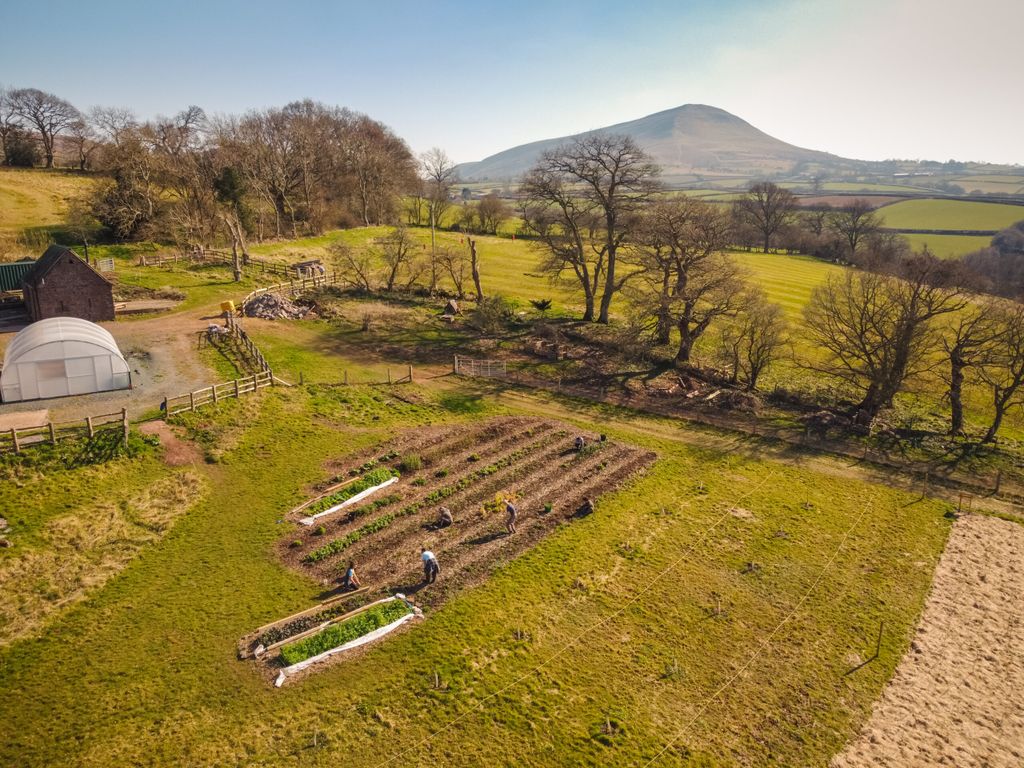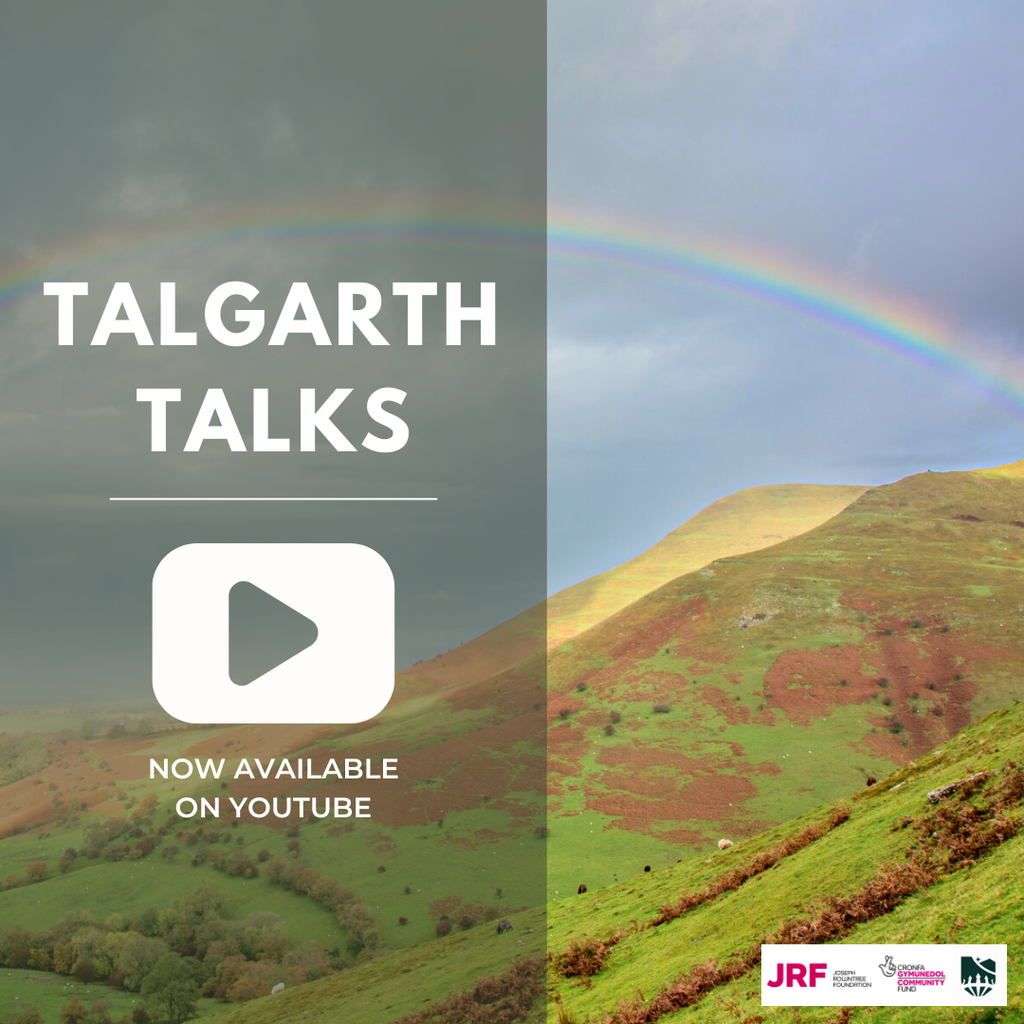We’re thrilled that Diana Beresford-Kroeger is speaking at the inaugural Black Mountains College Lecture at Hay (digital) Festival on May 31st. Register and join us online.
This got Ben thinking… we need to think like a forest.
My friend Keith can listen to an internal combustion engine and tell you what’s wrong with it. He knows if there’s not enough oil or too much, water in the fuel, or a bent piston rod, or a faulty carburettor, just by the sound of it. Sometimes known in these parts as “the tractor whisperer”, Keith is an exemplar of a new field: “systems thinking”.
“a systems perspective” is really the only way to look at the entangled, interconnected, web of life that is the biosphere we inhabit and of which we are an influential part.
Understanding how multiple tiny moving parts fit together to make a whole is not so much a discipline as a perspective, a way of looking and seeing a problem, an organisation, an eco-system. At its root, it is a perspective and analytical tool with a genesis in nature. Since “a systems perspective” is really the only way to look at the entangled, interconnected, web of life that is the biosphere we inhabit and of which we are an influential part. One might argue that the best way to encourage, or teach, systems thinking is to study ecology. This is among the most complex and little understood fields of science: how a small effect like a butterfly flapping its wings could, in the famous saying, cause a hurricane half-way across the world. Or the chance dropping of a bird could determine the ecological succession of a patch of ground: influencing the vegetation and in turn the structure of soil, forms of agriculture, the fortunes of humans, millennia later.
Nature holds clues to sustainable solutions.
Forests have a special place in any conversation about solutions for many reasons but two in particular. Firstly, they are the lungs of the planet. Without dramatically more trees to convert the increasing amounts of carbon dioxide to oxygen our human descendants on the earth will struggle to breathe. But forests are also a living exemplar of the kind of systems thinking that can lead us out of our current political and environmental cul-de-sac.
On a mechanical level, forests can show us how to capture energy, cycle nutrients, water and atmospheric gases for the benefit of the whole living community of the forest. There are mysteries here still unknown to science: if we could understand how photosynthesis actually works to concentrate photons of sunlight into sufficient force to split the carbon dioxide molecule we could replicate it at scale; or imagine if we knew how fungal networks transmit minerals and carbon throughout a forest, like the internet – if we could feed people through fungal fibre optics; If we knew how trees transport hundreds of litres of water up into the canopy on a daily basis, we could transform our relationship to water, and energy. Nature holds clues to sustainable solutions.
We need to learn to think like a forest
And on a metaphysical level, too, if we can learn to think like a forest – to value the vital role played by every species with whom we share our environment and on whom we depend for our own livelihood (and lives) – then we might start to learn to live with the grain of nature a little more and act to protect trees and forests and watersheds with the same resources that we sometimes devote to fighting foreign wars. In a forest, every species has its time and its place, and the whole is a little less productive, less efficient, less diverse and less beautiful without each one.
Protect trees and forests and watersheds with the same resources that we sometimes devote to fighting foreign wars.
Introducing Diana Beresford-Kroeger
Diana Beresford-Kroeger has spent her whole life devoted to understanding forests and advocating for their preservation. It was her work that first showed how trees can read signals from other trees through aerosols – organic compounds released into the air. And, decades before a team of scientists would win a Nobel prize for a similar discovery, she found that the cells of trees emit light in response to sound. In several landmark, peer reviewed textbooks she has explained in great detail how the boreal forest that encircles the globe at northern latitudes cleans our air, traps pollution, makes rain, seeds primary production in the ocean and underpins the integrity of the terrestrial ecosystems of the northern hemisphere.
Diana Beresford-Kroeger is the embodiment of the kind of leader Black Mountains College aspires to produce.
Diana Beresford-Kroger is an original. She has been called a polymath, a visionary, ‘the Jane Goodall of trees’ among other things. But she is above all, a patient observer of the natural world. And it is that, more than anything else that has made her a true systems thinker. She is the embodiment of the kind of leader Black Mountains College aspires to produce. Fearless in her own perception of the world, even when it contradicted conventional scientific wisdom. Trained in fine art, she has the artist’s attention to detail when it comes to asking questions of cell structure. Why is the ghibbane structure of a leaf cell shaped like a cello? Does it have something to do with sound? She asked herself, when first confronting a leaf through an electron microscope. After fifty years of research and writing she is now dedicating herself to building a living library of trees to preserve genomes for future generations.
In what we hope will be the first of many Black Mountains College lectures at the Hay Festival, on Sunday May 31, Diana Beresford-Kroger will share insights from her life and scientific career. The lecture will be free, broadcast online on the Hay Festival streaming service and will be followed by a question and answer session led by Owen Sheers, my co-founder here at BMC. You’ll be able to purchase copies of Diana’s recent memoir, ‘To Speak for the Trees’ through the Hay Festival online bookshop and other partners.

Diana has changed the way many people, including leading scientists, see trees and forests. Please join on Sunday May 31, 2020 and see why.

More like this
-

THE FUTURE IS HEALTHY AND NUTRITIOUS – HERE’S HOW TO MAKE IT HAPPEN
As food security rises on the global agenda, the solution isn’t stockpiling but transforming our…
-

Training for a Changing World
As the challenges facing our natural world grow more complex, the need for skilled, adaptable…
-

Talgarth Talks Community Lectures
Talgarth Talks are monthly public lectures that aim to inspire the ecological imagination, spark fresh…
The BMC Prospectus
Download the Black Mountains College prospectus for an overview of our courses, campuses, and vibrant student life
Visit us
Come along to one of our Discovery Days or Campus Tours to explore our campuses and meet your tutors
